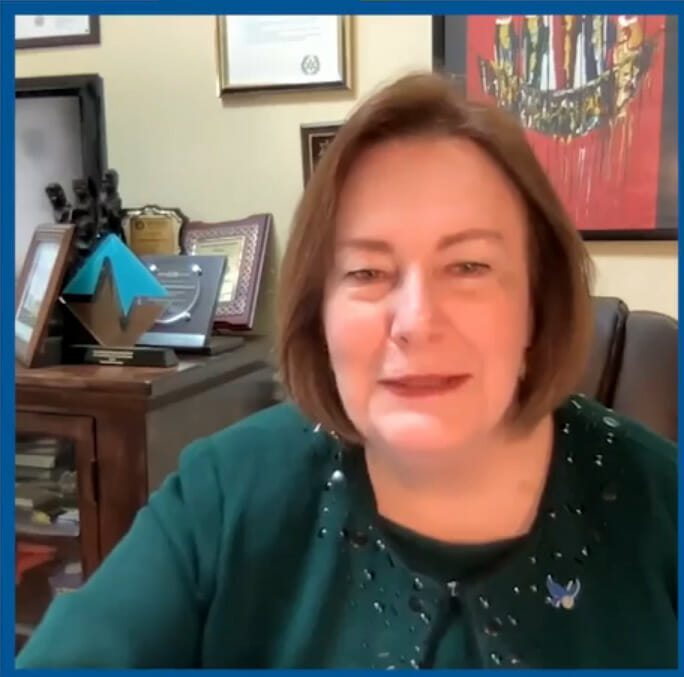A group of health quality experts is asking the Centers for Medicare & Medicaid Services to give faith-based and other community organizations a formal role in individual nursing homes’ improvement efforts.
A new advisory council program that opens the doors of “vulnerable” nursing homes to outsiders and connects them with existing Medicare Quality Improvement Organizations (QIOs) would be designed to drive better outcomes and help address inequities.
But as proposed, it also could compel participation by punishing nursing homes that don’t opt-in with a new, negative icon on Medicare.gov.
Speakers outlined a potential pilot program during the virtual 2022 CMS Quality Conference, where a Wednesday session focused on the dual aims of advancing equity and improving nursing home quality. CMS Administrator Chiquita Brooks-LaSure and others noted the pandemic revealed new problems as well as the role non-healthcare leaders could play in solving them.
In a proposed pilot, community leaders — from churches, synagogues, food banks or other organizations — would spearhead Resident, Family, Community Advisory Councils (RFCACs) with direct access to and influence on a facility’s governing body. In efforts to address health disparities, they would be matched with QIOs and a growing body of local subject-matter experts to stress the need for specific changes and guide their implementation.

“We want to identify the community leaders, empower the community leaders and let them lead in terms of the the pressure that would be placed on the nursing homes, leveraging that pressure,” said Pat Merryweather-Arges, executive director of Project Patient Care and a former executive director of QIOs serving Illinois, Iowa and Colorado. “It will create consistent and sustainable accountability pressure.They are the community leaders: They have a vested interest in what’s going on in their community.”
Their presence would serve the many nursing home residents who don’t have family or other personal advocates while providing additional transparency into how well individual facilities deliver care, speakers said.
Developing social trust
“There is a great deal of interest in nursing homes and especially for legislators and key elected officials for the nursing homes in their community,” Merryweather-Arges added. “We believe that this will create the opportunity for change.”
Geriatrician Michael Wasserman, who last summer co-authored a white paper proposing the councils, told McKnight’s that vulnerable nursing homes invited to participate could include those where a majority of residents are of color, those in the Special Focus Facilities program, those with one- or two-star ratings or those in communities with a high minority population.
He said a similar model involving community leaders has been proven successful in federally qualified health centers, where boards must include community representatives.
“Developing social trust and relationships can have a positive outcome in nursing homes,” Wasserman said. “Studies have shown community engagement is associated with positive health outcomes and perceived social support.”
He also called on CMS to promote the use of human-centered design and technology and mandate full-time infection preventionists as part of nine “key building blocks” for advancing equity.
Religion the ‘genie’?
Terris King is a Baltimore pastor and former CMS official who founded a healthcare consulting firm focused on equity and access. During COVID, he worked alongside Johns Hopkins University to serve as a trusted source sharing vaccine and other information in the Black community and with elders.
“This is the first time, when it comes to nursing homes, that we’re intentionally focused on inviting community in, and it’s certainly the first time we’re doing that with faith-based organizations,” King said. “During COVID-19, a genie came out of the bottle where we really recognized the benefit of faith-based organizations in terms of working with healthcare institutions.”
He said faith-based groups are already working with vulnerable populations and are “primed” to be called into nursing homes. He said they could provide a much-needed support to residents in majority minority nursing homes, emphasizing the trust religious Black residents put into their church leaders.
During a question-and-answer session, some participants embraced the concept of community councils but discouraged publicly branding any that declined to participate. They noted that facilities are taxed by new COVID-era regulations and potentially understaffed and may not have the resources to coordinate such a panel.
Wasserman said afterward, however, that “the stakes are too high to not require this.”
CMS officials did not weigh in on whether they plan to pursue the pilot, though they did invite Wasserman to present at the conference after seeing his initial proposal.
In a letter to agency leaders last fall, Rep. Jan Schakowsky (D-IL) urged them to quickly implement the recommendations called for in Wasserman’s paper. She cited “longstanding concerns that racial and ethnic minority nursing home residents, as well as residents in nursing homes located in under-resourced communities of color, experience lower quality of care than their White counterparts,” a concern that deepened during the pandemic.



